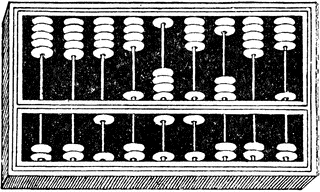When I was a math teacher, I spent a lot of time on equations: writing them, solving them, using them to test my students’ math skills. Knowing how to solve equations is one of the most useful, and comforting, skills we can gain from studying mathematics.
As a writer, I still find equations useful and comforting. After all, you know exactly where you stand with equations: the whole idea is that the bits on either side of the equal sign are … well … equal.
 How is that useful or comforting for writers?
How is that useful or comforting for writers?
Stories are like math problems. Say that my hero, Ms. X, faces a series of obstacles in accomplishing a task. Her story will only be interesting if those obstacles are big enough and difficult enough to force Ms. X to stretch and grow in order to overcome them.
In equation language: original Ms. X + growth in Ms. X = size of obstacles
Now I can use my math brain to test my writing equation. If the obstacles are too big, Ms. X will not be able to stretch or grow enough to overcome them, and the story will fizzle out. If they’re too small, the changes in Ms. X won’t be compelling enough to make the reader care whether Ms. X succeeds. The trick is to get the balance right by creating obstacles that are big enough to make Ms. X change in a believable way.
When faced with a writing roadblock, a writer can ask: How big is the challenge facing this character? What action or change will the character have to make in order to overcome it? Does that action or change fall within the character’s capability, or have I created a an equation that doesn’t work?

Permalink
Wonderful. As an accountant, I have found the equation solving skills I learned in my high school and university days has served me well. Surprising, accounting has many complex transactions that lend themselves to utilizing equations, including simultaneous equations. Scary thought, isn’t it.